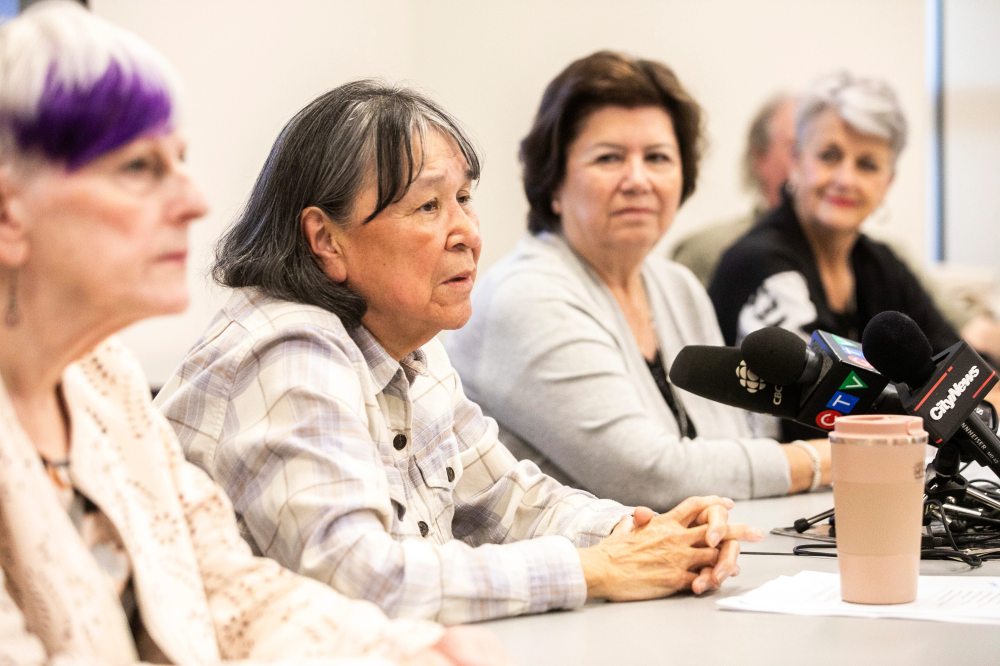Province urged to address seniors’ housing needs
Advertisement
Read this article for free:
or
Already have an account? Log in here »
We need your support!
Local journalism needs your support!
As we navigate through unprecedented times, our journalists are working harder than ever to bring you the latest local updates to keep you safe and informed.
Now, more than ever, we need your support.
Starting at $15.99 plus taxes every four weeks you can access your Brandon Sun online and full access to all content as it appears on our website.
Subscribe Nowor call circulation directly at (204) 727-0527.
Your pledge helps to ensure we provide the news that matters most to your community!
To continue reading, please subscribe:
Add Brandon Sun access to your Winnipeg Free Press subscription for only
$1 for the first 4 weeks*
*$1 will be added to your next bill. After your 4 weeks access is complete your rate will increase by $4.99 a X percent off the regular rate.
Read unlimited articles for free today:
or
Already have an account? Log in here »
WINNIPEG — More seniors will end up homeless if the province doesn’t address the need for affordable assisted living for Manitobans living on less than $2,000 a month, says a coalition of seniors organizations.
“A lot more of our seniors, our relatives, are landing on the street and being homeless,” said Kathy Mallett of the Manitoba Seniors Equity Action Coalition at a news conference in Winnipeg on Monday.
“I think that it’s getting worse as each year goes by.”

Mallett was one of several speakers who presented a priority list for the Office of the Seniors Advocate that’s expected to open Nov. 1. Mallett wants to see a review of housing and care options for seniors who can’t afford the $3,000 to $6,000 charged by the private sector for assisted and supportive living.
The province has identified the private sector as the primary provider for assisted living, Mallett told reporters. Seniors who rely on Old Age Security and the Guaranteed Income Supplement have less than $2,000 a month and can’t afford it, she said.
“We believe there needs to be a continuum of rent-geared-to-income (seniors housing) which includes independent living, assisted living and supportive housing in order to prevent premature entry into the long-term care system,” said Mallett.
The coalition wants the seniors advocate to review the supply and cost of independent living, assisted living and supportive housing, as well as the gaps in and barriers to those services, she said.
Whoever assumes the role should replicate a study by the B.C. seniors advocate, said coalition member Tom Simms. Its 2023 findings show how money that’s spent in long-term care directly impacts the quality of life for residents, he said.
“What the review found was some disturbing findings,” Simms said.
Non-profit, long-term care facilities spent 25 per cent more per resident on direct care as compared to for-profit facilities, for example. A comparative review conducted after the B.C. government increased funding for contracted long-term care facilities by 35 per cent was also telling, Simms said. It found not-for-profit facilities delivered more hours of care than they were funded to deliver, while for-profit facilities delivered less.
Simms called for “evidence-based data to make decisions about how we better meet the needs of older adults that are in long-term care.”
Home care also needs to go under the microscope, said Sandra Oakley, vice-president of the Manitoba Federation of Union Retirees.
“We’ve all seen harmful stories experienced by individuals within the home-care system highlighted in the media on a regular basis,” Oakley said.
“Home-care system funding and supports need to be improved to strengthen the capacity and the resources of home-care services to support older adults to age in place,” she said.
Manitoba’s seniors advocate must ensure that all seniors’ voices in the province are heard, said Marnie Strath, chair of the Canadian Association of Retired Persons Manitoba chapter.
“We feel the new seniors advocate should establish an advisory council that is representatives of older adults through the province, including representatives from equity groups,” said Strath, who noted the majority of Manitoba members live in rural areas.
A spokesperson for Health Minister Uzoma Asagwara said the seniors advocate will consult with seniors groups and listen to seniors and their families.
“Their job is to be seniors’ voice recommendation to government,” the spokesperson said.
» Winnipeg Free Press
